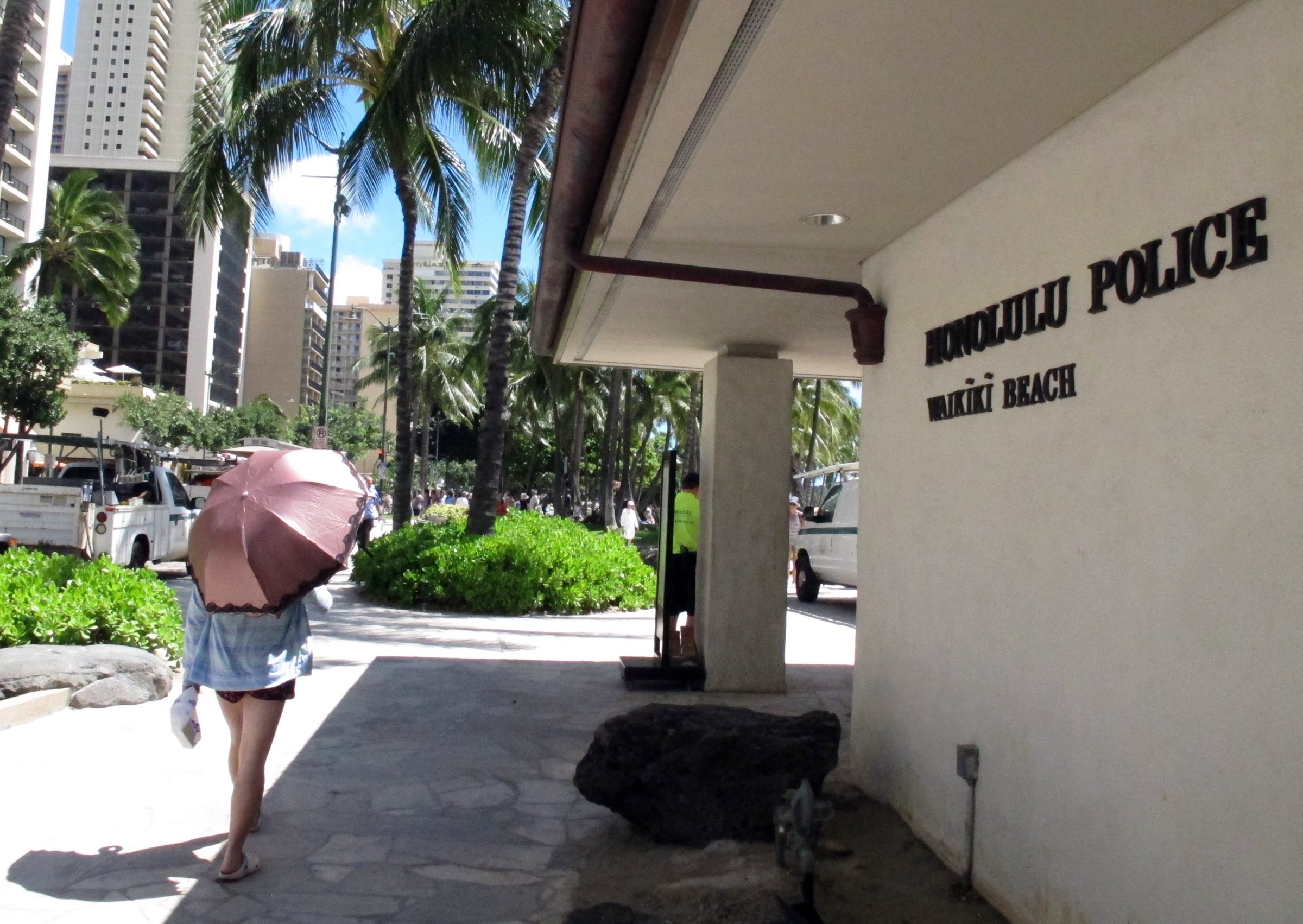
Cops in Hawaii working prostitution busts can’t have sex with their targets anymore.
Police in The Aloha State signaled this week that they’re willing to drop their objections to nixing a bizarre exemption to state law that allows officers to have sex with prostitutes in the course of investigations. The law was put in place in the 1970s to protect police from prosecution after undercover prostitution stings, but concerns that police may be abusing the exemption and raping prostitutes had advocates lobbying for a change. After a heated debate over the necessity of the law made national news late last week, supporters of the exemption agreed to throw in the towel on Tuesday, the Associated Press reports.
“I suppose that in retrospect the police probably feel somewhat embarrassed about this whole situation,” State Sen. Clayton Hee told the AP. “But, thankfully, the issue has been brought to light and the behavior has been addressed.
Though police only need verbal confirmation of a transaction in order to arrest a prostitute, law enforcement officials testified to the state House Judiciary Committee last month that if the exemption were removed, it would give criminals knowledge of what the police could and could not do. Officials said that prostitutes would try to “cop check” potential Johns by forcing themselves on the officers sexually, expecting that cops would not be able to go through with a sexual encounter.
But advocates scoffed at that claim.
“Not one of [the prostitutes I’ve spoken with] has ever cop checked, which was the term that was used in testimony by both the prosecutors’ office and the [Honolulu police]” said Kathryn Xian, who founded the Pacifica Alliance to Stop Slavery and helped draft the new legislation.
Teresa Bell, a Honolulu police spokeswoman, told TIME that she had never heard of the term “cop checking”—a term used by department officials in public testimony.
“To my knowledge, in recent memory I have not seen any complaints,” Bell said when asked if there have been any complaints that police are abusing the exemption. The department has its own rules prohibiting police from having sex with prostitutes, but Bell wouldn’t comment on allegations those rules are flouted.
Xian and other advocates are adamant that police have abused the exemption. At a state Senate Judiciary Committee hearing last week, a criminal defense attorney testified that his client was raped three times by police before being arrested for prostitution. Xian said that while complaints can be filed against police officers, prostitutes are scared to do so because of possible retribution. “And the only way you can verify it is by word—he said, she said,” Xian added. “These investigations are not recorded, and they sued to be in order to safeguard against such violations.”
State Rep. Karl Rhodes, who chairs the state House Judiciary Committee, said there was no testimony of such abuse when the House agreed to remove language ending the exemption from a larger prostitution crackdown bill in February. “The police testimony was that they had rules in place to deal with such situations,” he said. Rhodes said he never would have supported keeping the exemption in place had he known of alleged abuses.
Now both the House and the Senate are likely to pass new legislation ending the exemption. It’s unclear exactly when lawmakers will vote on the change, but it’s expected by May.
“Maybe my confidence was misplaced, but I find it hard to believe that their internal rules would allow for the things that are being alleged at this point,” Rhodes said. “But if the police are abusing the discretion Hawaii state law has given thsem for the last 25 years, I’ll be the first one to say we need to take it away… The general trend of the law here [in Hawaii] with my support has been to punish johns and pimps more, not prostitutes.”
Hee said he was working quickly to remove the exemption after hearing testimony about its abuses. “The reason prostitution is illegal is because it’s sex for sale,” Hee told TIME. “So it’s baffling to me how they’re trying to make a connection between the sale of sex and penetration for penetration’s sake.”
The exemption seemed inevitably doomed after last week’s testimony and national headlines. Few states have such laws, and Michigan appears to be the only one with a similar exemption. “We’ve moved way beyond the idea that targeting and successfully locking up those who engage in prostitution is an efficient or effective means of promoting public safety,” said Andy Harris, an associate professor in criminal justice at University of Massachusetts, Lowell, noting an increased focus on combating the demand side of the sex trade.
“In most cases, all we are doing is creating a revolving door between the courts, our jails, and the streets and doing little to address the underlying reasons why these women… are on the streets in the first place,” Harris said. “The idea that providing police with this tool to gather ‘evidence’ will in any way address the core problems of human trafficking and sexual exploitation seems quite absurd.”
More Must-Reads from TIME
- Why Trump’s Message Worked on Latino Men
- What Trump’s Win Could Mean for Housing
- The 100 Must-Read Books of 2024
- Sleep Doctors Share the 1 Tip That’s Changed Their Lives
- Column: Let’s Bring Back Romance
- What It’s Like to Have Long COVID As a Kid
- FX’s Say Nothing Is the Must-Watch Political Thriller of 2024
- Merle Bombardieri Is Helping People Make the Baby Decision
Write to Eliana Dockterman at eliana.dockterman@time.com